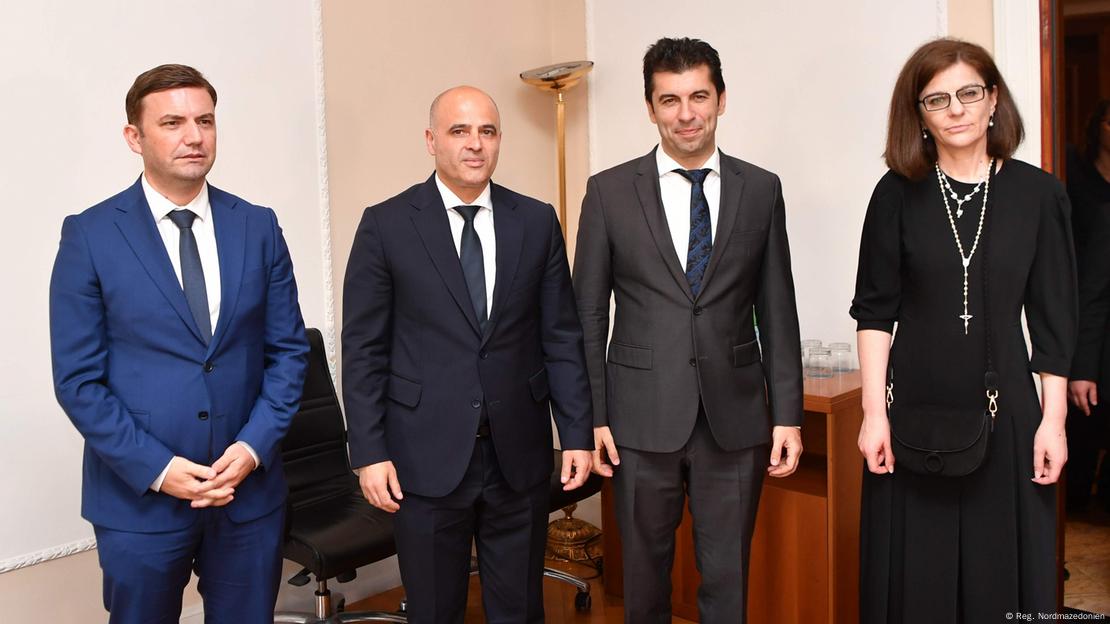North Macedonia’s Constitutional Court has opened a case to review the constitutionality of the bilateral protocol the country signed with Bulgaria on July 17, 2022, during the period of the so-called “French proposal” aimed at unblocking EU membership talks, BV reported.
The Court said it is in the process of gathering necessary data and reports before reaching a decision.
Who filed the initiative?
The initiative was submitted by former MP and ex-leader of the DOM party, Liljana Popovska, who claims the protocol violates the Constitution and infringes on fundamental freedoms and rights.
According to Popovska, the document’s form and content go beyond a standard legal act addressing a specific article of a treaty between two states, producing harmful effects on the identity issues of the Macedonian people, language, and state.
She also alleges the protocol was never ratified by parliament, never published in the “Official Gazette,” and contradicts the Law on the Conclusion, Ratification, and Execution of International Agreements. She is calling for the Court to annul the document, which she says is merely the minutes from an intergovernmental commission meeting.
The protocol was signed in Sofia during the second meeting of the Joint Intergovernmental Commission by then foreign ministers Bujar Osmani and Teodora Genchovska.
After the signing, Osmani stressed that for North Macedonia it was crucial the document was not part of the EU negotiation framework, that the Macedonian language remain untouched in communication with Brussels, and that historical issues be kept out of the talks. He described the protocol as an agenda of political dialogue and sectoral cooperation, including five key topics: history, EU integration support, hate speech, territorial claims, and rehabilitation of victims of the communist regime.
VMRO-DPMNE, then in opposition, slammed the protocol as an act of “capitulation,” accusing the government of concessions damaging to national interests.
What’s in the protocol?
The protocol, part of the package accompanying the initial French proposal to overcome Bulgaria’s blockade of accession talks, continues to be referenced in EU integration documents, despite not being officially signed by the Macedonian side.
In the latest French proposal, the protocol is not directly included in the negotiation framework but refers instead to “annual reviews and effective implementation measures under Article 12” of the 2017 Good Neighbourliness Treaty between the two countries.
Although left out of the framework, the protocol appears in the declaration on holding the first intergovernmental conference and in draft conclusions for the EU Council, where it is welcomed as “an important step” toward improving good-neighbourly relations and regional cooperation.
The minutes outline commitments such as:
-
Including Bulgarians in North Macedonia’s Constitution;
-
Aligning legislation with constitutional amendments;
-
Measures against hate speech and territorial claims in school materials and public discourse;
-
Rehabilitating victims of communist repression and opening former security service archives;
-
Joint implementation of recommendations from the historical and educational commission, including schoolbook content;
-
Joint calendars for commemorating historical events and figures;
-
Mechanisms to monitor compliance in education, culture, and media.
Bulgaria has hailed the protocol as a key step in advancing North Macedonia’s EU membership process, while in Skopje it has triggered fierce debate over its impact on identity and national sovereignty.



